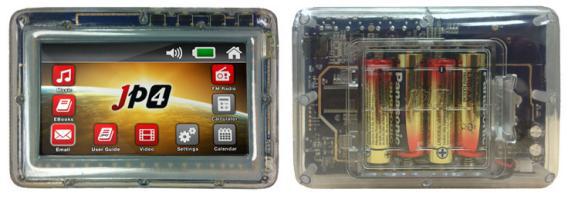Over the weekend, USA Today reported that more and more prisons are offering their prisoners the option to purchase individual tablet computers. “We have anticipation and hope to make it a good educational tool,” an Ohio correctional official said of the specially made miniature tablets manufactured by a company called JPay. These aren’t exactly iPads: The tablets come in a transparent, contraband-inhibiting casing and have limited functionality; users can download MP3s, play games, or read and draft emails. Though some worry that prisoners will use these tablets to engage in illegal activities, or will simply turn them into bludgeons or shivs, others hope they will become part of the rehabilitation process, and that prisoners will use them to connect with family members and potential employers on the outside.
Though I doubt these tablets will primarily be used to set up job interviews, I find this story fascinating all the same as an example of the American entrepreneurial spirit. There are millions of people locked up in jails and prisons, many of whom have friends and family on the outside willing to send money to make their time behind bars a bit more comfortable. That’s a lot of buying power.
And so you shouldn’t be surprised to learn that there are a lot of third-party companies that do a brisk business connecting inmates with various amenities. There’s the Florida-based JPay, which, in addition to its mini-tablet (the “JP4”), also provides prisoner email and “video visitation” services. USA Today also reports on a company called the Keefe Group, which “launched an MP3 player and music download service for prisoners in 2009. The service netted more than 1 million downloads a year after it was introduced, according to a news release on its website. Access Securepak, a Keefe Group affiliate, offers a variety of custom packages that can be sent to prisoners: foodstuffs, personal hygiene products, clothing, electronics, many of which come in clear, see-through packaging. MyCarePack.com provides similar services.
These companies fill an obvious niche. From a prisoner’s perspective, food and comfort items sent from the outside world are most likely preferable to the selection of crackers and tinned fish available at their respective prison commissaries. From a correctional officer’s perspective, a snack package sent from a trusted third-party vendor is less likely to contain contraband than a similar package sent by an individual. And from a general perspective, why not let private companies provide goods and services that jails and prisons are unable to provide on their own? I don’t know whether the JP4 inmate tablet is going to be a big rehabilitative success story. But it’s a crackerjack example of the free market at work.
Crime is Slate’s crime blog. Like us on Facebook, and follow us on Twitter @slatecrime.
